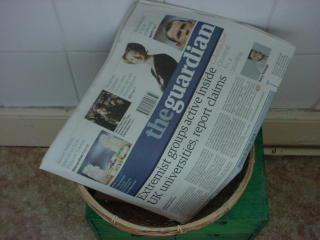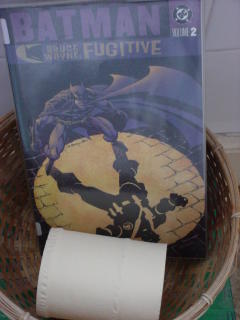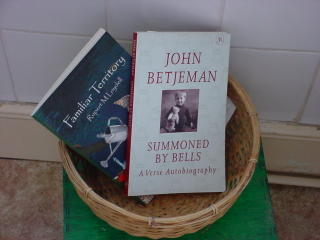Penguin Modern Poets 10
Adrian Henri
Roger McGough
Brian Patten

It was 1968.
Hey Jude was playing endlessly on my sister’s blue Dansette record player and memories of Yellow Submarine, which I’d seen that summer, were still fresh and vivid when into our classroom came a timid-looking student teacher carrying a copy of The Narrow Road To The Deep North.
For a while several of us were beguiled by these ancient Japanese Haiku poems; oiky working class Basho street kids lost in images of old frogs jumping into rippling pools and the like. But when we began to lose concentration, that canny student teacher pulled out a copy of The Mersey Sound and whipped us back in line.
The cover design was a psychedelic beacon flashing at the outer edge of our black and white lives. The times were polarised and solarised and this small book was impossibly exotic and esoteric. At the time, the poems by Roger McGough were the ones we all liked best. “Mother the wardrobe is full of Infantrymen” and “Icarus Allsorts” had a slightly scary Cold War / CND edge that brought with them the merest whisper of the protest that clamoured on the periphery of our youthful consciousness. More immediately perhaps, the liberal sprinkling of comic book characters mentioned by all three poets certainly helped win friends and influence people in class.
So much so that when it came to writing down a list of the books I wanted for Christmas and birthday, The Mersey Sound was on the top. At the time, although I didn’t know then, the book was something of a poetic phenomenon. Penguin had printed 20,000 but it quickly sold out, requiring a reprint. During 1969 that slim volume was as well read as any of my Marvel and DC comics, space race enclyopedia or the Dr. Who annuals that never quite lived up to the show itself.
Of course I didn’t “get” most of what The Mersey Sound was about but that didn’t matter. It made me feel somehow connected to, well, whatever it was that I thought was going on out there in that wider, long-haired world that I intuitively knew I wanted to be part of.
By the time I was in my teens Adrian Henri’s poems were my favourites and they remain so today.
Endlessly self-referential and archaically hip, they gather up the smell and feel of the period in a declamatory whirlwind; each one a glittering prize captured from the counter-culture crown. They may sound old and well-worn now but they are undeniably authentic little gems. His poem, “Me”, essentially a list of his heroes at the time, was for me a literary equivalent of trying to name the faces from the cover of Sgt. Pepper’s.
The only ones on Henri’s list I knew when I first read it were The Beatles and Manfred Mann. With each passing year I began to bump into more and more of those immortalised names like so many notches on the bedpost of my cultural awakening.
Flashing forward to the 90s and I’ve just met a woman called Debra at a party. We are introduced by a mutual friend and get talking. Somehow poetry comes into the conversation. “One of my favourite collections is The Mersey Sound” she tells me and in that moment I knew my life was going to change forever.







